| Share |  |
 | |||
Health Gain - Weight Loss - Part 9: How Toxins Affect Weight and Health
 Do you have trouble losing weight? Do you find that certain areas of your body keep expanding despite the fact that you are not eating any more than you normally do? Have you tried applying the guidelines contained in these "Health Gain – Weight Loss" articles, and yet fail to experience the drop in pounds that you desire? An accumulation of toxins may just be the culprit.
Do you have trouble losing weight? Do you find that certain areas of your body keep expanding despite the fact that you are not eating any more than you normally do? Have you tried applying the guidelines contained in these "Health Gain – Weight Loss" articles, and yet fail to experience the drop in pounds that you desire? An accumulation of toxins may just be the culprit.
Despite a renewed focus among Americans on healthier eating and increased exercise, the trend of ever-increasing levels of obesity over the course of the last 30 years continues. Is it merely a coincidence that the amount of toxins infiltrating our food supply and environment has also increased dramatically over the same period of years?
The results of many studies agree that a clear correlation exists between the levels of these toxins in our environment and food supply and the problem of obesity. Though largely unrecognized, these toxins greatly contribute to both weight gain and the inability to lose weight because of how they interfere with the function of hormones and weight control mechanisms. 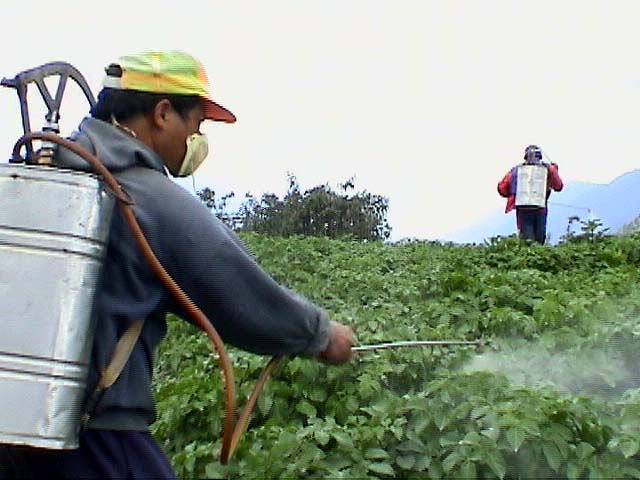 Toxin’s Affinity for Fat
Toxin’s Affinity for Fat
The body must deal with both internal toxins (by-products of our own metabolic processes and microbial compounds) and external toxins (chemicals and metals from the environment). The problem we face today is that the unprecedented high levels of toxins in our food and environment have exceeded the ability of our bodies to process and eliminate it all.
The types of toxins that tend to accumulate in the body and interfere with a person’s metabolism are called “lipophilic” or fat-soluble. This term means that the toxins accumulate in the body’s fat. Pesticides and herbicides that are sprayed on the crops are primary examples of this type of chemical toxin. These chemical substances get into the soil and ultimately make their way into the cells of the plants that we consume. Chemical food additives and preservatives, PCB’s (a group of chemicals known to be carcinogenic) from industrial waste, phthalates and Bisphenol A (chemicals found in plastics), xenoestrogens (man-made estrogens), mercury, and other environmental chemicals are further examples of these fat-soluble toxins.  Chemical pesticides that were found harmful and banned years ago still show up in human tissues and bodily fluids today in laboratory studies. In spite of their discontinued use, they remain in the soil and other places in the environment.
Chemical pesticides that were found harmful and banned years ago still show up in human tissues and bodily fluids today in laboratory studies. In spite of their discontinued use, they remain in the soil and other places in the environment.
Water-soluble toxins are more easily eliminated through the urinary system and sweat glands, but fat-soluble chemicals must go through different phases of detoxification in the liver in order to be converted to a form that can be excreted through the normal elimination channels of the body. They also enter the cells of the body through the fatty layer of cell membranes more easily than water-soluble chemicals.
These types of fat-soluble toxins get into our bodies in a number of ways. One way is by eating the bio-accumulation of toxins concentrated in fat from forms of life lower on the food chain, particularly meats, dairy and fish products. Eating a poor diet consisting of refined and processed foods further introduces these toxins to the body, since they are loaded with preservatives, additives, flavorings, colorings and other chemical compounds. Drinking tap water and even some bottled water adds more toxins to the mix. 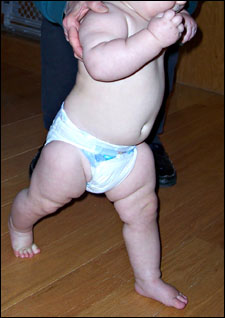 How Toxins Affect Weight Control
How Toxins Affect Weight Control
Many studies show a strong correlation between individuals with a higher BMI (Body Mass Index) and higher levels of toxins in the body, particularly fat soluble ones. This trend begins early in life. A number of research studies have shown that exposure to toxins during critical stages in the development of a fetus or newborn increases the likelihood of the child struggling with weight control as an adult. According to Steven Joyal, MD, Vice President of Scientific Affairs & Medical Development for Life Extension Foundation (an anti-aging and wellness scientific research organization), there is a clear linkage between particular types of environmental toxins found in our modern food supply and a 73% increase in infant obesity over the past 30 years.
If you wonder how toxins could affect a child so young, consider the results of a study conducted in hospitals in 2004. In this study the umbilical cord blood of babies was tested immediately after birth for 413 different toxins and environmental pollutants. A total of 287 toxins and chemical pollutants, (200 on average per sample) were found in the blood of babies just taking their first breath. Clearly, toxins can transfer from the mother to the baby in the womb and continue to do so after birth through breastfeeding.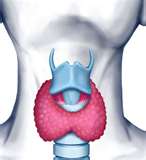 Whenever weight is lost, fat cells release whatever is stored there – including any toxins accumulated in that fat. A number of studies have discovered that pesticides and other toxins released from fat stores in adults do damage to the mitochondria of cells, slow metabolism and decrease fat burning. In one study, researchers found that the people who released the most pesticides from fat stores during weight loss had the slowest metabolisms after weight loss.
Whenever weight is lost, fat cells release whatever is stored there – including any toxins accumulated in that fat. A number of studies have discovered that pesticides and other toxins released from fat stores in adults do damage to the mitochondria of cells, slow metabolism and decrease fat burning. In one study, researchers found that the people who released the most pesticides from fat stores during weight loss had the slowest metabolisms after weight loss.
Studies also reveal that high levels of certain toxins disrupt the normal human weight control mechanisms, either by mimicking hormones involved in controlling weight (known as endocrine disruptors) or interfering with the normal production and function of those hormones. For instance, some toxins are known to block the signal of a particular hormone (leptin), which tells our brain when our stomach is full so we can stop eating. Toxins can also suppress levels of an important thyroid hormone (T3), which slows the resting metabolic rate and reduces a person’s fat burning capacity. Other consequences of an impaired metabolism that results in poor weight control include increased appetite, above-average fat storage and a decrease in the ability of the body to burn calories.
Adverse Effects on Overall Health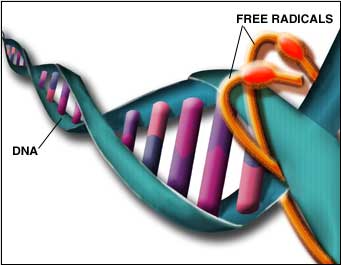
In addition to the impairment of the body’s metabolism, accumulated toxins are believed to be a root cause of many disorders and diseases. Stored toxins can lead to:
- Free radical damage
- Inflammation associated with obesity and metabolic syndrome
- Increased acidity in the body that contributes to additional inflammation
- Immune system stress (from constantly reacting to the presence of toxins)
- Reduced energy and strain on the heart (from adding extra blood vessels to feed growing toxic fat cells and tissues).
- Water retention (from the body retaining fluid to dilute circulating toxins)
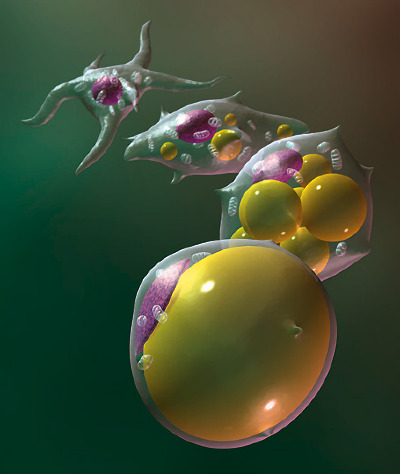 The Protective Role of Fat Cells
The Protective Role of Fat Cells
One of the roles of fat is to act as a protective buffer for toxins. Fat-soluble toxins are routed to the liver to be converted to a water-soluble form that can be excreted through the primary channels of elimination more easily.
When toxins are not effectively processed by the liver and excreted, the body does what it can to keep them from circulating in the bloodstream: it stores them in fat. Generally speaking, the majority of these toxins from an overburdened liver end up in fat cells that literally become “toxic dumps”. When a fat cell maxes out its ability to increase in size, additional fat cells are created to form new fat storage sites. As that occurs, some toxins may re-enter circulation in the bloodstream as they seek another place to reside.
Storage Locations for Toxins
If the liver is still overwhelmed by excess toxins, circulating toxins may be re-deposited in any number of places in the body. Besides fat cells, they may settle in joints, form arterial or intestinal plaque or be held inside cysts or lymph fluids. Fat cell storage may also be particularly detrimental: 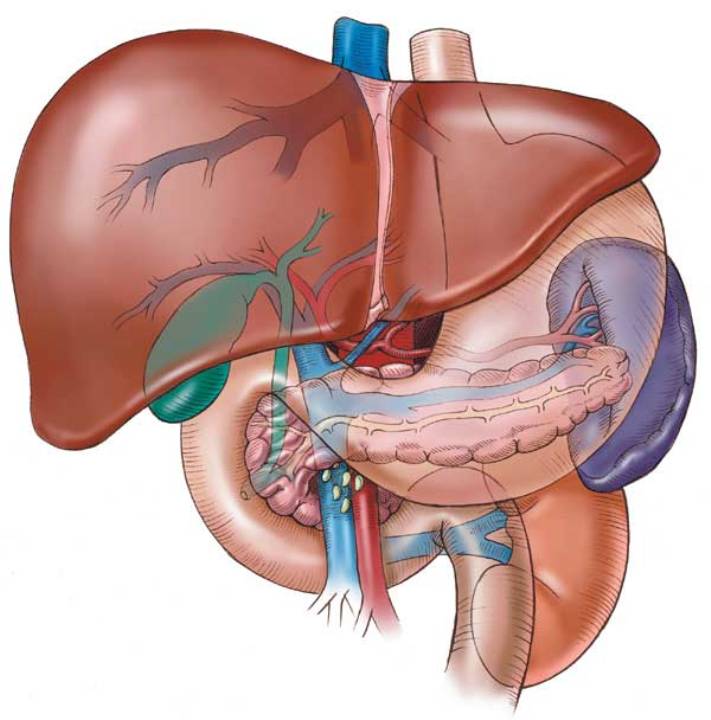 for example, toxins may lodge in the fatty areas of the brain and become neuro-toxins that contribute to cognitive disorders like ADD/ADHD, Alzheimer’s, Parkinson’s or difficulties with memory and focus. The breasts, prostrate and pancreas are other “fatty” sites in which toxins commonly settle.
for example, toxins may lodge in the fatty areas of the brain and become neuro-toxins that contribute to cognitive disorders like ADD/ADHD, Alzheimer’s, Parkinson’s or difficulties with memory and focus. The breasts, prostrate and pancreas are other “fatty” sites in which toxins commonly settle.
When too many refined and fatty foods are eaten for a period of years, the liver itself may become a fat storing organ. People with excess fat in the abdominal area that resists normal weight loss efforts often have a liver enlarged with deposits of fatty tissue, known as a “fatty liver”.
An increased level of insulin from eating too much sugar and refined carbohydrates is the prime reason that fat accumulates in the cells of the liver. This condition makes any weight loss extremely difficult until the liver is first cleansed and toxins (especially refined sugar) are removed from the diet. Inflammation and resulting free radical damage that typically accompanies a fatty liver hinders the process of detoxification and contributes to a slowed metabolism. An overloaded liver that never gets a chance to catch up on its workload may no longer be able to deal with detoxifying harmful toxins and burning fat. Detoxifying Safely to Lose Weight
Detoxifying Safely to Lose Weight
For the most part, toxins end up stored in other fat cells, where they may remain “stuck” indefinitely. Because the body resists breaking fat apart and avoids releasing toxins into the body, the problem of excess weight due to accumulated toxins is indeed a vicious cycle: the more fat a person has, the more toxins are retained and the more toxins are retained, the harder it is to lose weight due to their adverse effect on metabolism.
The only way out of this vicious cycle is to safely detoxify the body by following appropriate detoxification guidelines. As I mentioned earlier, toxins contained in fat cells are released into the bloodstream when fat is burned. If the body is not able to process and eliminate them quickly, harmful reactions may take place.
In addition to potential damage to the body, nausea, light-headedness, headache, unusual fatigue and other symptoms of toxicity typically occur when too many toxins are released back into the system at once. Fasting with only water may bring on these same type symptoms when the body is overly toxic, which is why it is not recommended as the best way to diet or detox. Elevated cholesterol levels may also occur as the body attempts to bind fat-soluble toxins in the blood to keep them from affecting tissues of the body.
Benefits of Detoxifying for Weight Loss
Though most weight loss programs do not emphasize the need to follow proper detoxification guidelines, it is extremely important for healthy, long-term weight loss to clear the pathways for both toxin and fat elimination. Because removing toxicity supports a healthy metabolism, even people with long standing weight problems find they can lose and maintain their weight much more easily when their bodies are free of damaging toxins. Fat cells will decrease in size when the reason they had for storing fat in the first place is eliminated.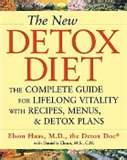
Before attempting to engage in a detoxification diet or program, it is important to first cleanse the colon and make sure it is functioning optimally so that the toxins the body is trying to eliminate through the intestinal tract will not be reabsorbed back into the bloodstream and increase the need for fat storage. During and following the colon cleanse, juice fasting or adhering to a strict detox diet that focuses on fresh fruits and vegetables and restricts meats, dairy, and refined and processed foods allows the body to use the energy that is normally directed to digestion for eliminating toxins, rebuilding healthy tissue and reenergizing the body. It is also important to drink plenty of water and take a good natural fiber supplement that will bind to the toxins and help escort them quickly out of the body. Both fiber and water will also support continued good colon function.
Every eliminative organ and system of the body (colon, kidneys, liver, lymphatic system, lungs and skin) must be working efficiently for the body to be effectively detoxified. I encourage you to read this month’s article in my current series “Detoxifying for Better Health” (as well as the articles in the series to be posted in the next two months) for more information on what is involved in the detoxification process and how you can detoxify your body.
 Keeping Weight Off for Good
Keeping Weight Off for Good
Modifying dietary and lifestyle habits that contributed to the need to detoxify in the first place is a must if you desire permanent weight loss. According to Paula Baillie-Hamilton, M.D., a researcher at the University of Stirling in Scotland, who has extensively studied the connection of toxins and weight, between 50 percent and 60 percent of our toxins come from food, and another 10 percent to 20 percent come from beverages.
In her work with overweight people, she found that those who simply eliminated toxin-containing food and beverages from their diets experienced gradual and lasting weight loss. Rather than changing the types and quantities of foods, these people ate only the organic, pesticide and/or hormone free versions of these foods. With the current state of our environment and food supply, removing these toxins can indeed be challenging. It is necessary, though, for anyone who wants to keep their body free of the accumulated toxins that are wrecking havoc on their health and ability to regulate weight. 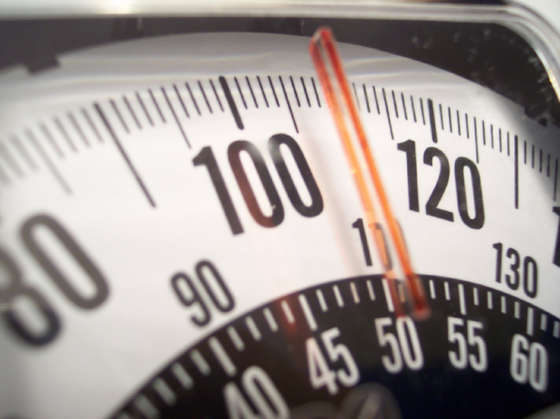
Conclusion
Taking measures to periodically cleanse and detoxify the body is absolutely essential for good health and key to effective weight loss. However, the only way to really be free of the negative affects of toxins is to take every step possible in order to both maximize your body’s ability to excrete them and minimize your continued exposure to them. A more efficient metabolism and a body free of the health-robbing effects of too many toxins is well worth the effort.
Sources:
- Ultrametabolism by Mark Hyman, M.D.
- Master Your Metabolism by Jillian Michaels
- http://blog.lef.org/2010/07/environmental-toxins-cause-inflammation.html
- http://toxsci.oxfordjournals.org/content/76/2/247.full
Copyright © 2008-2015 Lucinda Bedogne, CNHP, CNC
Post Your Comment...
|
|
||||||||||||



